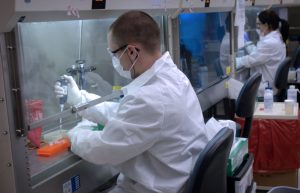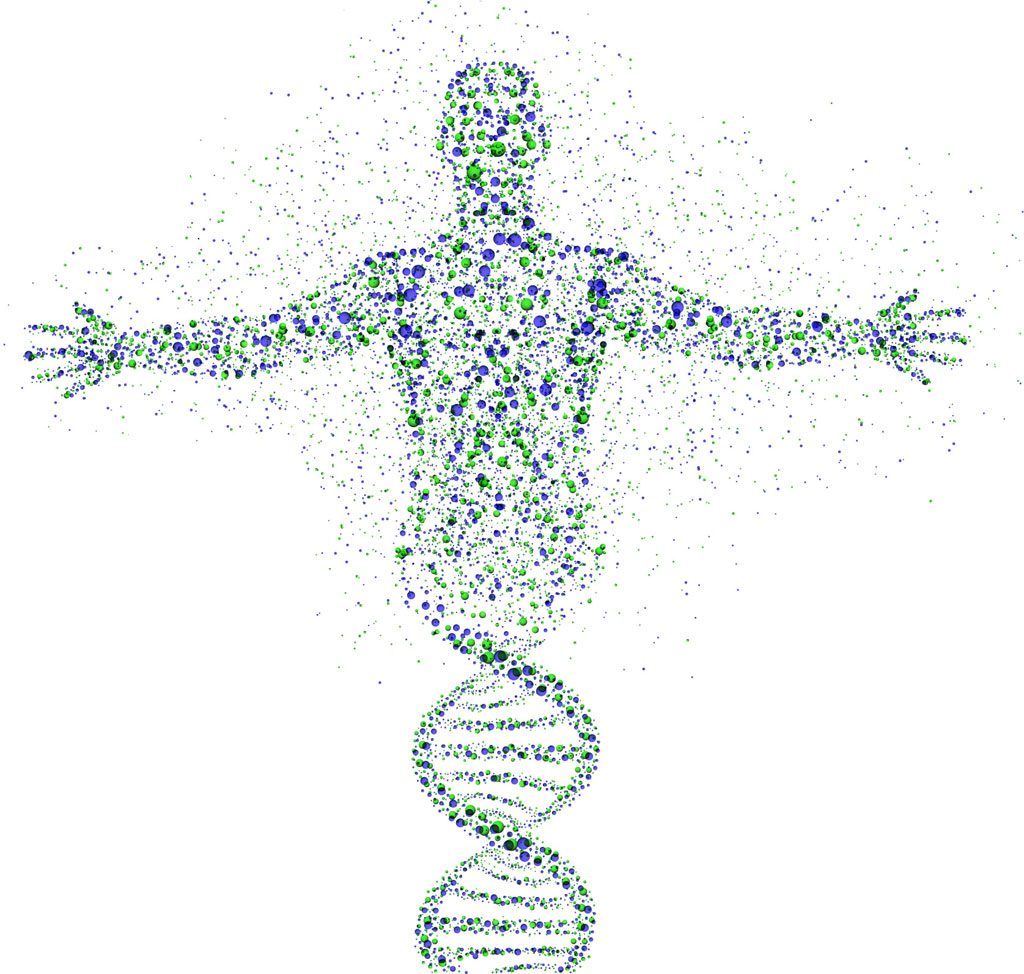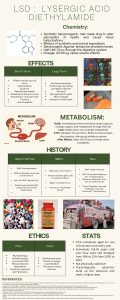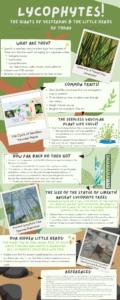Every day the possibility of a database full of every person’s genome fully sequenced being in the hands of the government grows. The current amount of genomic profiling allows for some prediction of the direction in which it is heading. The scientific community continues to make incredible bounds in the field of genomics. This extraordinary pace is something that also brings with it a number of questions, not the least of which is “Just because we can, does that mean we should?” The human genome project, completed in 2003, aimed to sequence the entire genome of a human. They came extremely near to this goal, sequencing approximately 92% of the genome.1 Ever since this remarkable achievement the entire world of genomics has been working to make the technology used more efficient and much more cost-effective, so that there would be the possibility to sequence people much faster and extremely accurately. The potential of this technology raises a few questions about when and if to do this type of sequencing.
The drive for reliable, efficient, and economical complete genomic sequencing is so high that a competition has been created to reward the first group of researchers who are able to sequence the genomes of multiple people in an extremely timely manner within a strict budget. The specifics of the competition are stated to be a reward of ten million dollars to the team that can sequence the genomes of one hundred different people completely and accurately within ten days and for less than ten thousand dollars per person’s genome.2 This challenge has been unmatched for several years now, but it is likely that someone could accomplish the goal in the next few years. The overarching goal of these efficient genome sequencing is for the betterment of the human race in determining genetic factors that play a heavy role in all sorts of ailments such as cancer, autoimmune disorders, and heart disease. When it is looked at from only this angle the idea of everyone having their genomes sequenced and stored to help personalize medicine and help people sounds like it would be for the good of every person, but it must be considered that there are always two sides to any coin, and both must be weighed to understand if this is something that society could truly benefit from.

The main concern of this type of database being compiled is the constant invasion of privacy at every turn. It is possible or even likely that certain sequences of DNA would be isolated to contain certain genes that present different effects on people which could cause discrimination in a multitude of areas. First, if this database is nationwide and controlled by the government it is possible that a trace amount of DNA could be found at a crime scene that belongs to someone who is entirely unrelated to the crime. The current system used to identify people linked to crime scenes is to use people who are already in the criminal justice system and people who are active suspects in the crime. This type of widespread database could potentially cause that system to change and search every single person with no claim except the presence of trace DNA. This would lead to a much higher false conviction rate in a system that is already so broken. Second, the more logical place to leave this information with is in the medical field because of its intended purpose of identifying potentially life-threatening ailments before they are life threatening, but the medical field has just as much room for discrimination with that deep of information about every person. For example, the potential for denial of an organ transplant because of a genetic predictor is incontrovertible. This is especially true if the genetic predictor is possibly affected by one’s own actions in life, in which case the organ allocation committees could throw out the profiles of people without giving them any shred of a fair consideration.3 Third, and finally, no matter what party is in control of this mass amount information on each and every person there is an undeniable threat of infiltration from the outside of the network. Every day that scientists work to better this world and help people live better there is a scientist out there working to tear it all to the ground. The incredibly vulnerable position such a consolidated collection of every person’s genetic makeup could place a population in is incredible. The dark side of the coin is not one that many people want to look at because it may seem pessimistic and close-minded, but it is crucial to the safety of the general public that every side of these types of concepts is analyzed.

President Bush pledges to defend America’s freedom against the fear of terrorism. | September 20, 2001 | Courtesy of Wikimedia Commons.
Another facet to this issue is if it is decided that the benefits of this type of database outweigh the potential dangers and struggles then when should the genome be sequenced and to whom is the decision up. In cases of In Vitro Fertilization, it would be possible to sequence the genome of the zygote before implantation giving potential options of determining any genetic abnormalities that could affect the child’s life and give that decision to the parents on whether or not, they want that zygote implanted into the uterus of the mother.4 This would most assuredly bring in the ethical issue of why we should be able to choose whether this person gets to live or die because of being different on some genetic level that could be overshadowed by their accomplishments in life. The example that is offered time and again is the case of Stephen Hawking who was without a doubt one of the most influential scientists and brilliant minds of the last century or potentially all time. Dr. Hawking suffered from ALS (Amyotrophic lateral sclerosis) for his entire life with him becoming bound to a wheelchair and needing the assistance of a voice generator. ALS is a condition that has a strong genetic factor and could potentially be one of the conditions that could be screened for in a pre-implantation IVF genomic profile. The choice of not going through with a pregnancy because of the possibility of a debilitating disorder is one that should be left to the universe and not given to people who could potentially rob the world of the next Dr. Hawking.5

In scenarios other than In Vitro Fertilization it would be possible to theoretically do these types of screenings directly at birth or even before and in these cases the option to eliminate the baby is often out of the picture, if not for legal reasons, for emotional or religious reasons. This raises the issue of discovering something that could cause immense emotional trauma to both the parents and the child when they grow up. An important example that is used throughout the genetic testing field today is that of Huntington’s chorea, a genetic disorder that results in the loss of motor and mental control. This is used as an example because it is characterized by a simple test but there is no treatment or cure and there is no telling when it could start to degenerate the brain of someone with it. Finding out at birth that this child that is only days old has already had their death certificate signed with the cause of death but having no gauge on when is a crushing blow to new parents that just want to love their babies and not think that their child will likely be taken from them before the parents are gone.6 This type of prognosis would also be extremely damaging to the baby as it grows up and eventually learns that the stopwatch of their life is already set to end much sooner than expected. That potential of knowing something but being completely helpless against it is immensely damaging to any person’s world view and needs to be heavily considered. An ultimate point to make of the age of genetic profiling has to do with the lack of consent that a newborn cannot give. Many life altering things could be present in a genomic profile of oneself and that should be a decision someone makes on their own for themselves, not having it made for them by even a parent. Fears can be developed quite early in an adolescent’s development and learning about their predispositions for certain things could change how they lead their lives negatively. There has been found to be a genetic component to addiction which could lead to a damaged social life while living in fear of being addicted to something.7 Also that addiction predisposition could be used against them in attempting to get a job in the future because of the linkage to their genetic profile being required to work certain jobs.
On the other side of this argument, there is of course the potential for tremendous good to come from this type of infant genomic testing. There are several genomic disorders that can be successfully managed if discovered early and known about thoroughly. One of these disorders is known as Phenylketonuria, also known as PKU, which is a buildup of Phenylalanine, an amino acid that is used in the production of proteins. This condition is caused by the mutation of a gene that codes for a protein that breaks down Phenylalanine, known as Phenylalanine hydroxylase. When discovered early in someone’s life they can go on to live fairly normal lives by maintaining a diet that limits the intake of phenylalanine.8 This early diagnosis is crucial to the lives of the people with this affliction because of how influential the diet is in these cases. The identification of problems before they start to impact a person’s life can be incredibly helpful, but these types of identification strategies start to breach the confidentiality of each family on their own.
If, and when are two of the largest questions to consider when observing the growth of genomic research and the proposals of comprehensive genomic profiles. The general population’s wellbeing is something that is often overlooked when advancing in science, and when it is something like genomic profiling it is crucial to have a well-informed public. Although the technology will continue to improve the installation of these programs should be left to the decision of each individual family. These types of innovations and exploitations of the human genome have the possibility to have devastating consequences if used the wrong way, and the scientific community should take a step back and take a breath. In the last fifty years incredible strides have been made in science, and it is time to admire and improve instead of rushing to the bigger and better ideas for the so called “Greater Good”. The presence of improving genomics will continue to grow in everyday life because of the natural human drive to solve many problems before they arise. This is incredibly interesting but could lead to unforeseen consequences if used where the world is not ready for them.
References
1. Wein, H. (2022, April 11). First complete sequence of a human genome. National Institutes of Health (NIH). https://www.nih.gov/news-events/nih-research-matters/first-complete-sequence-human-genome#:~:text=The%20Human%20Genome%20Project%2C%20completed
2. Dondorp, W. J., & de Wert, G. M. W. R. (2013). The “thousand-dollar genome”: an ethical exploration. European Journal of Human Genetics, 21(S1), S6–S26. https://doi.org/10.1038/ejhg.2013.73
3. Freeman, M. (2016). THE ETHICAL IMPLICATIONS OF EMERGING GENETIC PREDICTORS OF POOR ORGAN TRANSPLANT OUTCOMES. https://d-scholarship.pitt.edu/28659/1/FreemanMA_ETD2016_8-26-2016.pdf
4. Almond, B. (2006, January). Genetic profiling of newborns: Ethical and social issues. Go.gale.com. https://go.gale.com/ps/i.do?id=GALE%7CA188851461&sid=googleScholar&v=2.1&it=r&linkaccess=fulltext&issn=14710056&p=HRCA&sw=w
5. Pochet, R. (2017). Genetics and ALS: Cause for Optimism. Cerebrum: The Dana Forum on Brain Science, 2017, cer–05-17. https://www.ncbi.nlm.nih.gov/pmc/articles/PMC5501042/
6. Myers, R. H. (2004). Huntington’s disease genetics. NeuroRX, 1(2), 255–262. https://doi.org/10.1602/neurorx.1.2.255
7. Kalivas, P. W. (2003). Predisposition to Addiction: Pharmacokinetics, Pharmacodynamics, and Brain Circuitry. American Journal of Psychiatry, 160(1), 1–2. https://doi.org/10.1176/appi.ajp.160.1.1
8. Blau N. (2016). Genetics of Phenylketonuria: Then and Now. Human mutation, 37(6), 508–515. https://doi.org/10.1002/humu.22980




15 comments
Michaell Alonzo
Hey Christopher, congratulations for being nominated for an award! I know so little about science, so learning more about it is always exciting to me. This page provided a wealth of information regarding the operation of genomic profiling, its benefits, and potential drawbacks. I liked the pictures you included with your essay. I read this article with no prior knowledge, yet after reading your article I feel like I have enough understanding of it to be able to explain how various factors may influence the genome sequence and the benefits and drawbacks of doing so to someone else.
Madeline Bloom
This article caught my eye. I love the amount of research that you put into while you were writing this article. I am not a science major and do not know much about the topic but you gave me a good understanding about how DNA works and what we should know about it. I think that government really does play a role in how they identify us.
Lorena Maldonado
This was a very well written article and kept my attention. I like how you gave your point and the research or possibilities of what could happen. It was definitely very interesting to read about and even though I am no science major I really enjoyed it. You did a fantastic job and congratulations on the nomination!
Jackie Velasquez
First of all, congratulations on your nomination. This article was well delivered and well deserved of the nomination. I read this article knowing nothing and I know feel like I know somewhat of this to the point where I can talk to some one else and inform them about how the genome sequence could be affected by different things and the pros and cons to it. I have no doubt that the government has influenced some things due to so much information that they already have.
Alyssa Leos
First of all I want to say congratulations on your article being nominated for an award. Your article definitely taught me more than what I was taught. It was very informative and it was not boring to read at all. I usually get bored easily when learning about anything science related but this article definitely kept me wanting to read more. Again congratulations on your article being nominated. Very well deserved!
Kayla Braxton-Young
This is a really interesting article and I really learned a lot from reading this article. I loved the images you used to go along with your article. I really like the flow of this article and its importance of this article. The topic of genomic profiling is a really important topic, personally, I didn’t know a lot about this topic, but I really learned a lot from reading this article. You did great research on this topic.
Joshua Marroquin
I am amazed on how well written this article was, no wondering it got nominated for a nomination. Congratulations on this amazing accomplishment. I am new to this topic that was written about; however, I did find enjoyment on learning something new. I am impressed with how much research needed to be done to write such a well written article.
Helena Griffith
Good work! Quite fascinating! You wish to research these topics after reading this article. The government undoubtedly already has access to a significant portion of the population’s DNA, passwords, and even bank accounts. You might be asking yourself, though, what else they might possibly do with this piece. I’ve never heard of PKU, but if it’s not caught early enough, it can be really frightening. I like how the post discusses this information and what to do if it is discovered before things go worse. Congratulations on your publication!
Shecid Sanchez
Congratulations on your award nomination! Science is a subject I know very little about so its always fascinating to learn more about it. This article was very informative about how genomic profiling works and the advantages it has as well as the disadvantage that comes with it. Great work !
Francisco Caballero
I thought you brought up great points throughout the article, I had never thought about the possibility of criminal systems being changed if a government is able to get their hands on this system with every citizens DNA in it. It really makes the reader think about possibilities which is something I thought was cool.